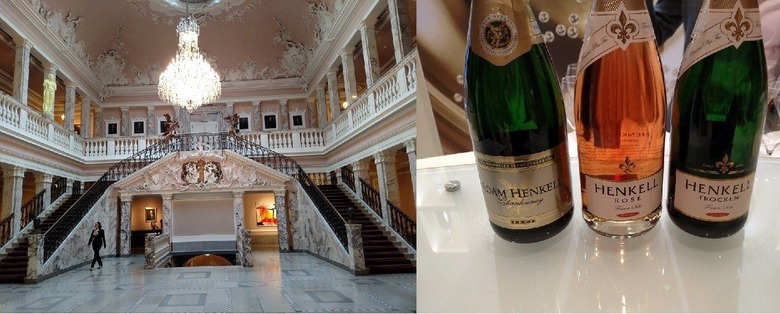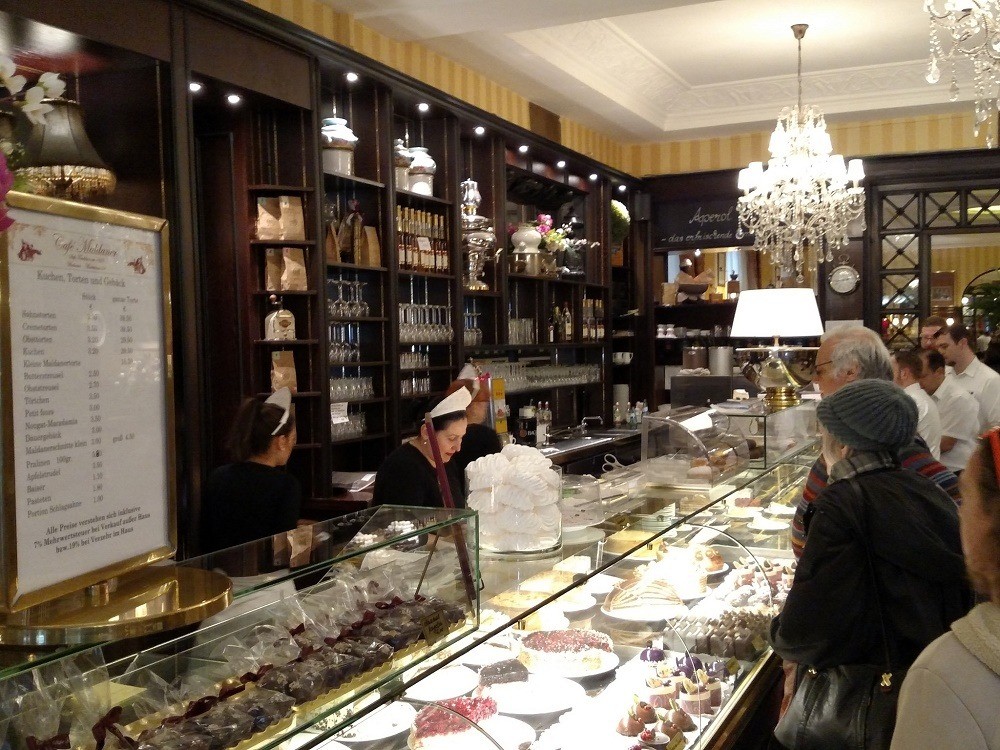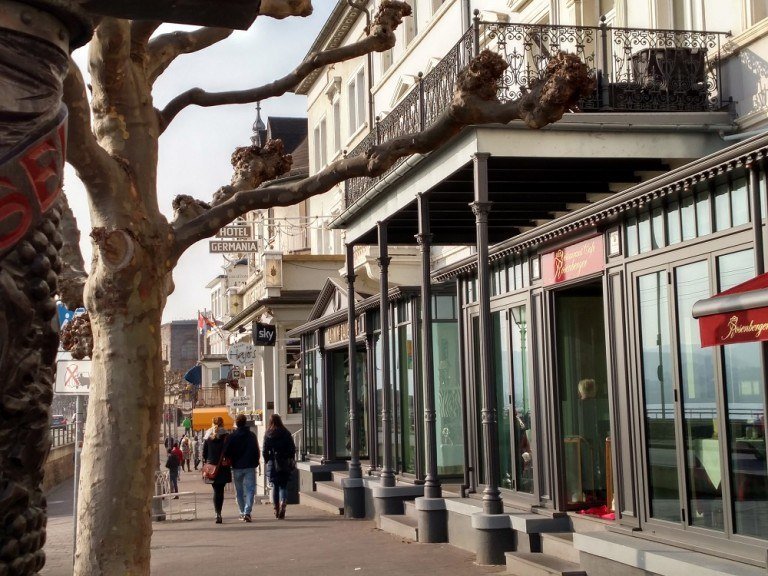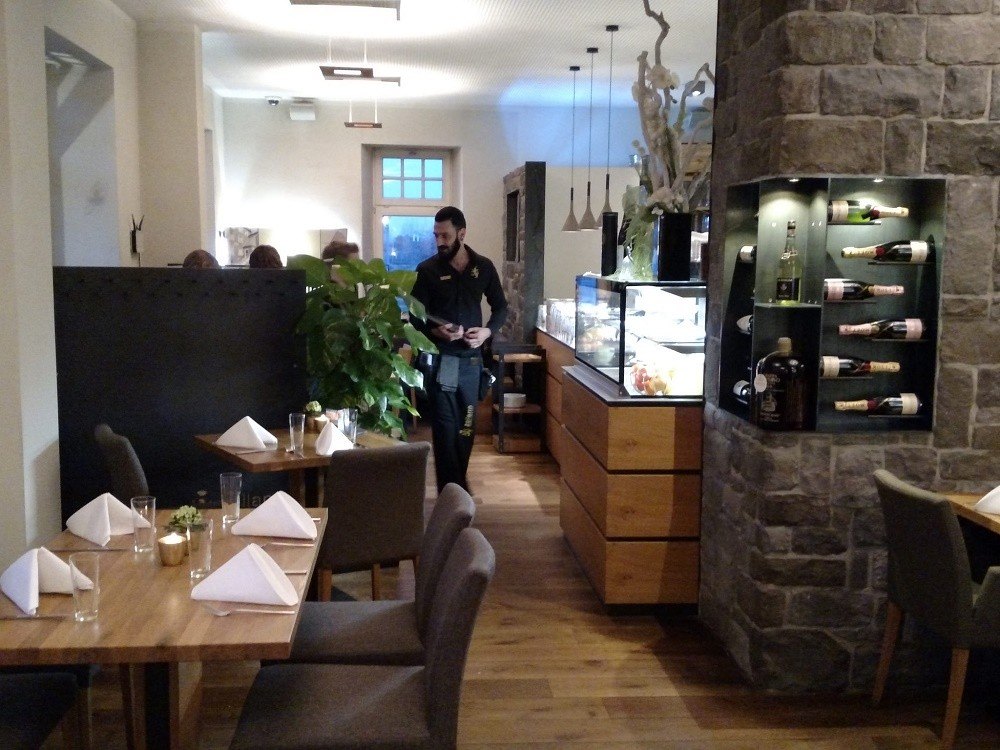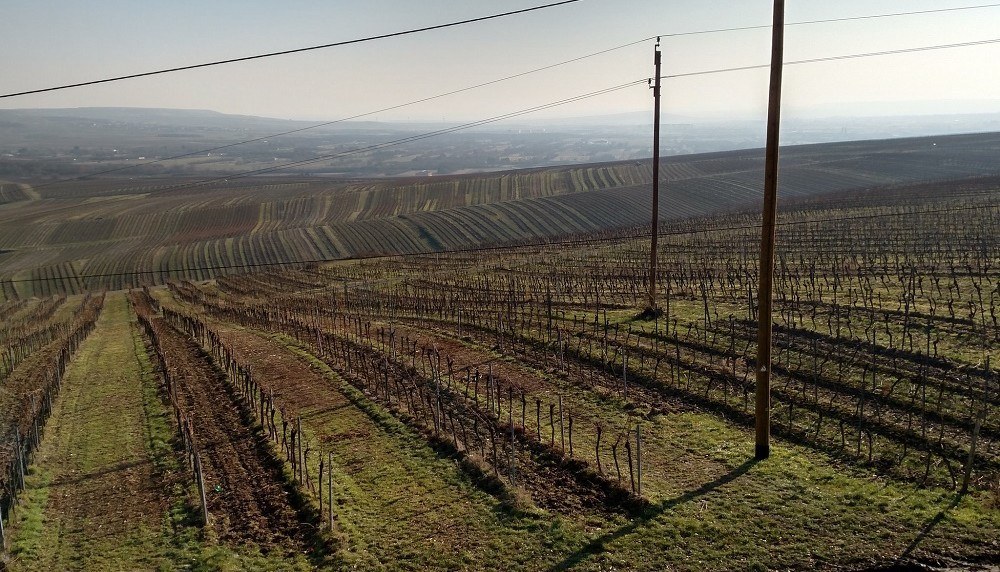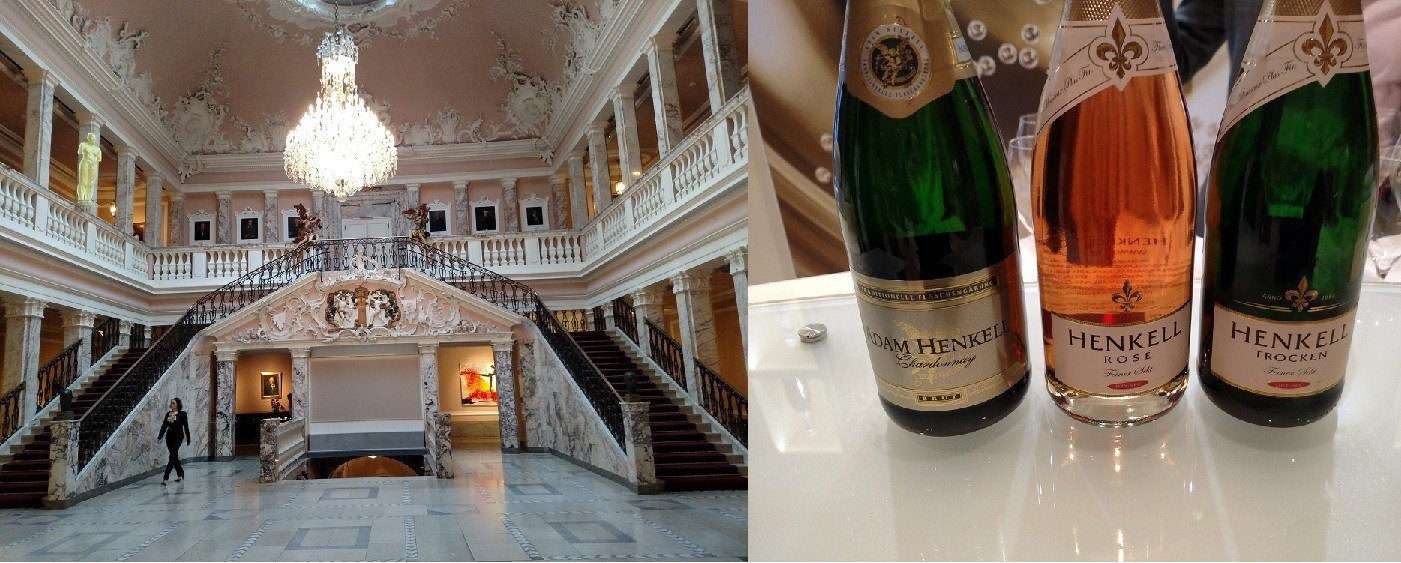Exploring The Best Food And Wine Experiences In Germany's Rheingau Region
All within reach by an hour's train ride west of Frankfurt along the Rhine River, Germany's Rheingau is a patchwork of historic villages, vibrant cities, and the country's most distinctive riesling wine-growing region.
Wiesbaden
Gateway city Wiesbaden serves as cultural and transportation hub to the Rheingau. Even if you're exploring by foot, the 200 mile Rheinsteig hiking trail begins next to the Baroque palace of Schloss Biebrich on the banks of the Rhine and meanders past numerous vineyards, palaces, castles, and monasteries along its way to Bonn. While hiking the Rheinsteig is of course perhaps the most arduous approach to exploring the region, your intrepid spirit will be rewarded by a richer, more personal connection to the landscape and people around you. Grape picking season in autumn offers more in-depth exposure to vintners when they open their doors for tastings and festivals.
When you're in town craving a sweet treat, Café Maldaner preserves the traditional coffee house ambiance that originated here in 1859. Plush sofas and chairs overlooking the wide variety of artfully prepared treats on display behind the glass of their impressive cake counter make you want to linger and get social. If you're in town Wednesday or Saturday, an open-air market on Dern'sches Gelände square features a wide array of fresh produce and handcrafted specialties.
Rüdesheim
A historic village featuring medieval architecture built into a hillside, Rüdesheim offers plenty to explore within its compact street grid. Drosselgasse serves as the main thoroughfare flanking the river on one side, with boutique shopping, eateries, wine taverns, and beer gardens on the other connecting to narrow lanes that trail off to vineyards rising up in the distance.
The hotel Altdeutsche Weinstube, run for five generations by the Ehrhard-Malgouyres family, is only a block away from the Drosselgasse, with a wide selection of rooms to pick from. Wrought-iron ornamentations and leaded stained glass windows invite you to gather in their onsite Weinstube (or "wine tavern"), where a French chef de cuisine creates regional and French delicacies with in-season, market-fresh ingredients like Ingelheimer asparagus during summer, chanterelles and different pumpkin dishes in autumn as well as roast duck and goose during winter. Wines on their list feature vintages from their family owned Carl Ehrhard wine growing estate.
Another dining option for authentic German favorites and biodynamic wines is right up the street at Weingut Jakob Christ. Chef Dagmar and her winemaker husband Rainer Hass combine assets, conjuring seasonal creations from local ingredients from the greens in their salads to the pork in their bratwurst pâté, sausages, brook trout, and Hessian goat and sheep cheese specialties. Their vegan organic wine selection draws from off-the-radar Rheingau grapes reflecting subtleties of the region's ever changing climate. Rainer believes that climate change is now impacting flavor profiles much more than other terroir attributes like soil and vine age.
Bingen
Accessible by ferry across the river from Rudesheim, Bingen is situated at the confluence of the Rhine and Nahe Rivers. This medieval village, now the southern gateway to the UNESCO World Heritage Site of the Upper Middle Rhine Valley, is perched high on a ridge surrounded by many architectural treasures like the Mouse Tower, a former toll station overlooking the Rhine, and the historic home of St. Hildegard of Bingen, a famous twelfth-century abbess and polymath of mythical proportions who advised emperors and bishops.
While strolling along Bingen's pedestrian riverfront walkway, you're sure to see a well preserved, over-500-year-old freight crane that also lights up at night. Right next door is the German steakhouse Zollamt, occupying a former customs office built in 1906. The menu here specializes in "shockheated" Kobe and other prime cut steaks sizzled in a uniquely designed grill/oven combo that sears meat at up to 1400 degrees Fahrenheit via an intense combination of convection and open fire; a tasty, dark outer crust with an extremely tender and juicy interior make it to your plate every time. Weather permitting, their spacious outdoor terrace overlooks Castle Ehrenfels, the Niederwald Monument, and Rüdesheim across the river.
Since vineyards span the hillsides across the Rhine as far as the eye can see, you may assume that winemaking isn't as prevalent in Bingen, but look to the backside of Elisenhöhe heights, particularly from St. Rochuskapelle Church and you'll see vines stretching to the horizon. Hemmes Winery is a hidden gem right in the village, making craft wines in a re-purposed school house. Award-winning winemaker Frank Hemmes and his family also pursue sustainable production using geothermal heat.
Eltville
This small village is a destination due to Park Hotel Tillmanns, a luxurious family-run hotel in a stately 18th-century French country home that was completely renovated and refurbished between 1995 and 1997.
An extensive breakfast buffet is included in their spacious downstairs sun porch, which also has a casual self-service bar in the corner for some evening tippling. A private terrace outside beckons when the weather permits. Owner Benjamin Gillert parlays his 10-year culinary background along with his stints as sommelier and event designer into lovingly running the property. His wife Anna Schneider and the rest of his family are fully integrated into every aspect of running the hotel, making sure no detail goes unnoticed.
A quick cab ride from Park Hotel Tillmanns, Weinhaus Zum Krug, an inn with accompanying farm-to-table restaurant, features a menu built on straightforward dishes made from the fresh local bounty. Third-generation chef Josef Laufer's motto — "the diversity of the simple is our demand and goal" — guides the operatrion. He keeps it all very personal, juggling roles as chef, host, and sommelier with his guests. Dishes like Wispertal trout and fried potato goat cheese dumplings or venison chops are rooted in traditional cookery, yet enhanced with new approaches toward presentation and flavoring.
Must-See Wineries
Riesling is the dominant grape in the Rheingau. The wines range from extra dry to sweet and can pair just as well with traditional German fare as with sushi and other international dishes. Although the Rheingau is Germany's smallest wine region, it's also the most compact — with nearly 8,000 acres of vineyards packed close beside villages, exploration is as easy as wandering up lanes until they turn into gravel roads leading past miles of vines. However, keep in mind that you'll need a car or bike to expediently visit the following vineyards:
Schloss Johannisberg — Vineyards have surrounded the winery castle here over the last 1,200 years, making it the world's oldest riesling estate. Originally founded under the Benedictine order, Johannisberg's longstanding winemaking heritage is now on display in the Bibliotheca Subterranea, a locked vault within the winery's cellar catacombs serving as a famed treasure chamber of centuries-old wine rarities. Grapes from their vineyards, which total nearly 200 acres, are still hand-picked, ensuring they're harvested at precisely the right degree of ripeness and giving credence to their motto: "Quality is determined in the vineyard, not during vinification."
Schloss Vollrads — Art, culture, and of course extensive wine cellars complement each other in a big way on this estate. A tower house, their premier landmark building built in the 14th century, is surrounded by a pond and can only be reached by a stone bridge. A two-winged manor house was built on the grounds in 1684 — the Greiffenclau family lived in the manor up until 1997. Riesling remains the only grape variety used at the winery, but it showcases the entire range of designations for wines made from the grape — kabinett, spätlese, auslese, beerenauslese, trockenbeerenauslese, and eiswein. The estate offers guided tours with tastings, a wine bar, and a shop, and hosts various special events with a regular concert stage for the Rheingau Musik Festival.
Kloster Eberbach — Once a Cistercian abbey, Eberbach Monastery remains to this day a meticulously preserved monument to classic European Middle Age architecture. The monastery's growing winemaking prestige over the last 9 centuries solidified the community's wealth. Grape varieties include riesling, but also branch out to pinot noir, pinot blanc and pinot gris. Their wine estate boasts over 1 million vines on the steepest slopes in the Rheingau, with 150 acres planted on over a 35 percent pitch. Their onsite restaurant as well as several lodging options make lingering a bit longer all the more attractive.
Henkell — The headquarters of the world renowned sparkling wine producer Henkell is just outside downtown Wiesbaden. Open for tours, it boasts a grand marble entrance hall with a rotating collection of paintings on the walls. Further exploration reveals Henkell's extensive production and bottling operation and vaunted cellars several floors below. Founded by Adam Henkell in 1832, the producer still successfully combines the artful composition of French cuvée with the precision and consistency of German craftsmanship. Henkell is now exported to more than 100 countries.
Coverage made possible by participating in a partially sponsored visit. Photos and video courtesy of Steve Mirsky, Altdeutsche Weinstube, and Park Hotel Tillmanns.
